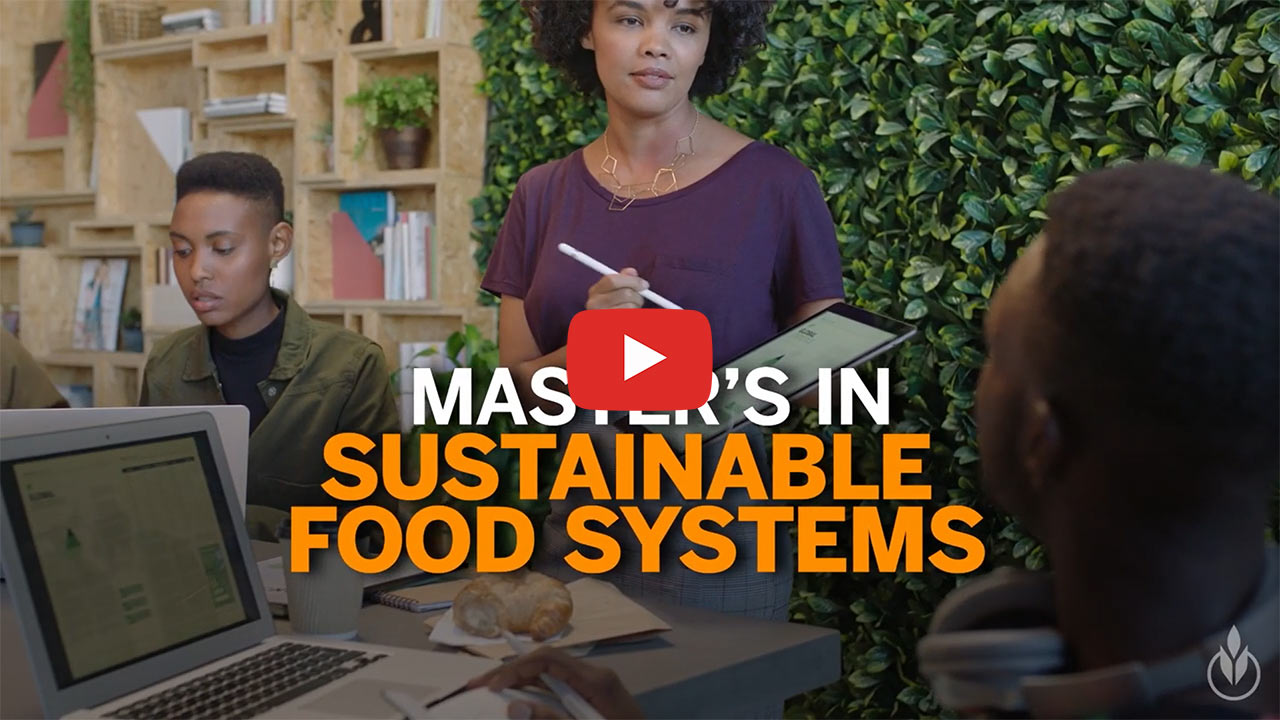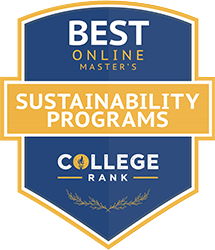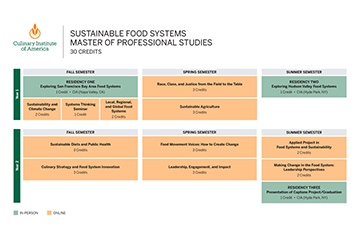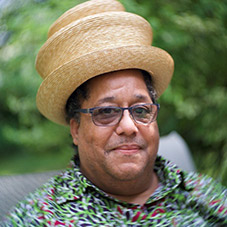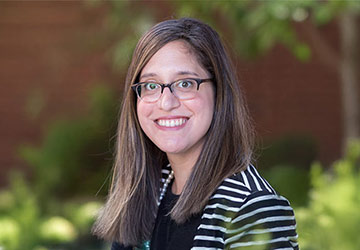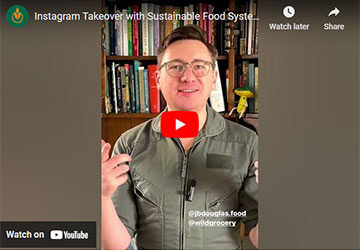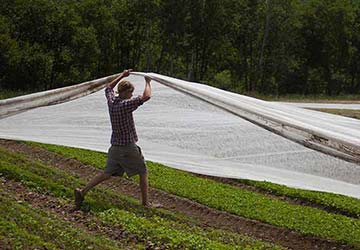Transform the Future of Food and Food Systems
You already know that complex social, environmental, and economic factors shape the world’s current food and food systems—for better and for worse. The challenges around creating better food systems that support personal and planetary health, equity and diversity, and more require a new approach to problem-solving, and you want to be part of the solution. But how? With our online master’s in Sustainable Food Systems you’ll be equipped with the tools, advanced level of knowledge, and qualifications to transform our food systems at the local, regional, and global levels. Step up and lead—it’s more important than ever.
Inquire to learn more about CIA master’s programs—how they support your goals, what the application process looks like, and how to take the next step.
Ready to get started? Apply now.
Quick Facts
Next Start Date: Fall 2026
Upcoming Deadline: March 15, 2026
Program Format: Online with three residencies
Program Duration: Two years
Total Credits: 30
Program Highlights
- Understand the interconnectedness between planetary health and our future food systems, with an emphasis on issues of climate change, renewable resources, waste reduction, responsible sourcing, regenerative agriculture, and healthy oceans and sustainable fisheries.
- Hone the leadership skills essential to create change and achieve impact—from the local to the global level. Transform food systems through small, grassroots initiatives and from within large organizations by influencing change up, down, and across departments. Drive reform and influence mindsets to inspire and create sustainable business models for the future.
- Examine institutional and public policies that address issues of diversity and inclusion, class disparity, labor justice, and race and gender inequality within the food system.
- Informed by the contributions of an external Advisory Council, comprised of leaders in sustainability and organizational strategy from top companies, foundations, and nonprofits—many looking for changemakers to help lead their organizations into the future—including Food at Google, Oatly, Panera, the James Beard Foundation, Zero Hunger | Zero Waste by Kroger, Good Food, FutureTable, and Wholesome Wave.
- Taught by a select group of the nation’s most talented leaders in food systems change—including CIA faculty, adjunct faculty, and guest lecturers.
- No reason to put your career on hold. Online classes taught by our expert faculty provide schedule flexibility for busy working professionals.
- Get real-life, field experience at short, immersive, in-person residencies that explore the characteristics of food systems on the West Coast (San Francisco Bay Area) and East Coast (New York City and Hudson Valley).
Cultivate Your Career and Change the World
CIA Master’s in Sustainable Food Systems degree is designed for professionals who aspire to champion sustainability innovations for non-profits and corporations, help existing organizations turn ideas into actions, and drive change around the health of the planet and its people.
Whether forging a new professional path or growing within a current role, this program is perfect for people looking to advance their careers in the following areas and beyond:
Supply chain management
Environmental lobbyist
Farmer advocate
Food writer
Product developer
Sustainability program manager
Registered Dietitian
Farm-to-Table Program Director
Policy director
Curriculum
The two-year, 30-credit Sustainable Food Systems master’s program includes:
- 27 credits in asynchronous online courses covering subjects such as sustainability and climate change; sustainable agriculture; food system innovation; leadership and impact; as well as a final capstone project developed in collaboration with faculty advisors and mentors.
- 3 credits consisting of three short residencies held in the San Francisco Bay Area and the Hudson Valley, held in your first, third, and final semesters.
Meet a CIA Master’s Student
Learn all about our master’s programs from the students who live them. Schedule a chat with our student ambassadors for a personalized introduction to CIA master’s programs, and ask any questions you have in a private setting.
Residencies
The convenient online learning format of the Sustainable Food Systems master’s program is supported by short, immersive residencies, which gather cohorts for hands-on learning and real-world experience. You’ll get field experience on both the East and West Coasts, exploring the characteristics of food systems in the San Francisco Bay Area and the Hudson Valley/New York City. Network with the changemakers leading the future of food through conversations and presentations with residency guests and CIA faculty. You’ll also get the opportunity to bond and collaborate with your fellow cohort members, who all share your passion for changing the world through food.
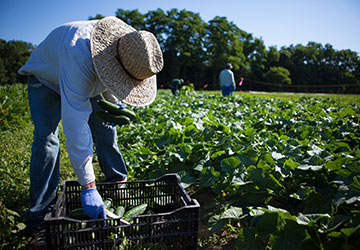
Master’s Degree Virtual Info Sessions
Join us online for a virtual information session and learn all about CIA food and beverage master’s programs. The Graduate Admissions Team will offer a deep dive on:
- Program curricula
- Admissions process
- Details about instructors
- Various career paths of our master’s degree graduates
- Plus, get all of your questions answered in real time
Find an information session that works for you, and register today!
CIA Advantage
The Culinary Institute of America has been educating successful food, beverage, and hospitality industry professionals for decades, helping to launch and advance thousands of careers. As a graduate of CIA, you’ll instantly become a part of the most notable Alumni Network—paving the way for exceptional career opportunities. You’ll also have lifelong access to career resources, including job listings, mentors, and networking events. Our master’s alumni have accelerated their careers to own restaurants and businesses, impact the health of communities, craft signature wine brands, become food writers, and become changemakers in their industry.
That’s the iconic CIA Network.
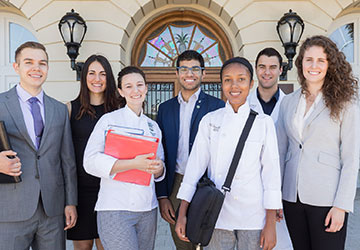
What They Are Saying
Featured Articles
There’s No Reason to Apply Alone for CIA Master’s Programs
How often do you hear from a real person every step when you apply for a master’s program? At the Culinary Institute of America (CIA), every prospective master’s student receives a message like this: “Hi, my name is Rebecca Rein, and I’m your new admissions counselor at CIA!”
What’s it Really Like to Be a Sustainable Food Systems Master’s Student
JB Douglas is a current student in our Sustainable Food Systems master’s degree program. Now in his second year of the program, JB’s professional background includes diverse work experience as a forager, recipe developer, private chef, and food writer and photographer.
Why the Food Business is About More Than Food
Dr. Scott Alves Barton describes himself as anomalous, a rare breed. He spent 30 years as a professional chef before entering academia, with tenures at historic restaurants like The Odeon, Tom Cat Bakery, Metro, and Aqua.
Frequently Asked Questions
Contact Our Graduate Admissions Team
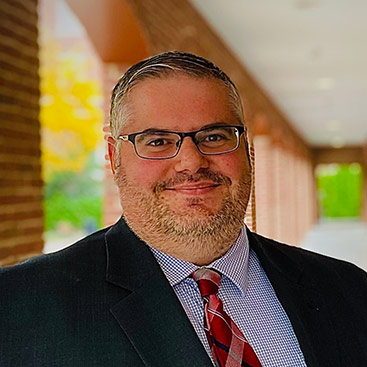
Robert Tremblay ’10
Associate Director—Graduate Admissions
Contact if you are a/an:
• International student interested in any program.
• U.S. student interested in Culinary Arts.
• U.S. student interested in Culinary Therapeutics.
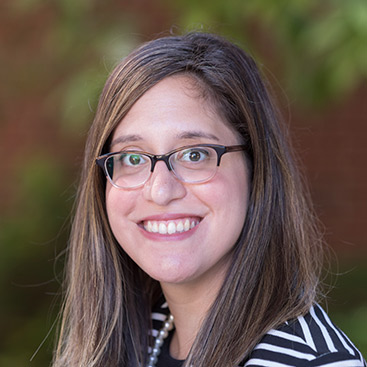
Rebecca Rein
Graduate Admissions and Enrollment Counselor
Contact if you are a U.S. student interested in:
• Food Business
• Sustainable Food Systems
• Wine and Beverage Management




